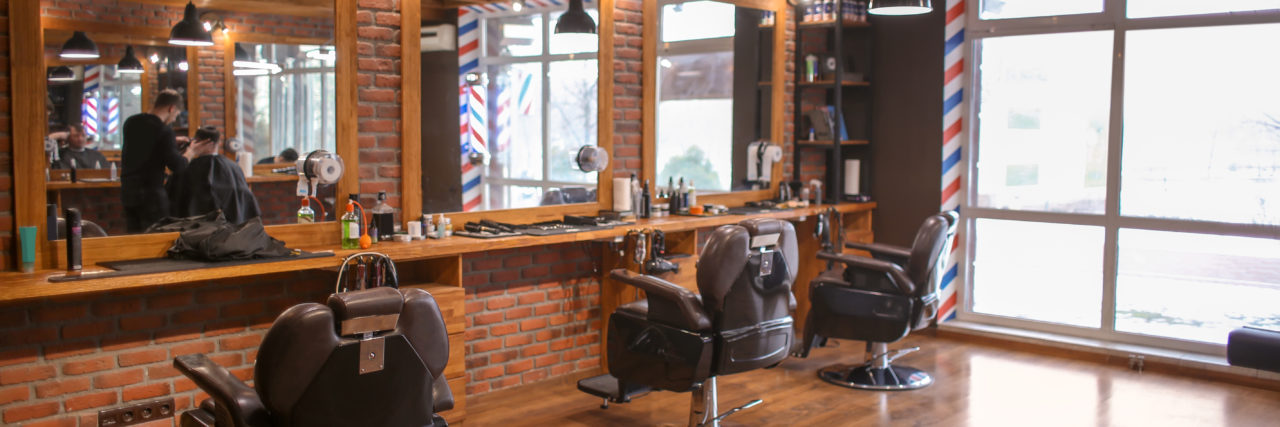The COVID-19 Reopening Questions I Need Answers for as a Person at High Risk
Editor's Note
Join The Mighty’s Coronavirus group to connect with other Mighties living through the pandemic. Read the latest updates, share helpful tips, or give and receive virtual support.
I need a haircut. These split ends are coming up on four months’ gestation.
I normally see my hairstylist every six weeks for a trim. My last appointment was scheduled for the week of the shutdown, but was canceled. So, during our extended stay-at-home time, I went from a little shaggy to a whole new look. When my salon reopened this week, I was contacted about rescheduling, but I hesitated. Being in the high-risk group with advanced congestive heart failure, I didn’t know if I should. I started searching and asking for advice, and I got nowhere.
“Stay at home as much as possible” does me no good. With online shopping and the grocery stockpile I have now, I could stay at home for years. But meanwhile, I would lose touch with my young adult children, my ill parents, my faraway siblings and even my local friends.
I suspect many in the high-risk category feel the same way. It was an easier call when everyone was at home, doing nothing. Now that restrictions are loosening, life is starting to go on without us. And though we felt it once when we were diagnosed, we feel it even more keenly now: the information is designed for the masses, the “normal” people. We feel paralyzed by a strange mix of mis- or missing information, fear and urgency. And even worse, all of our coping strategies have been ripped away as our people remain quarantined away from us.
And we are a bigger group than you might think.
According to the Kaiser Family Foundation, four in every 10 U.S. adults are at high risk of developing severe consequences with COVID-19 due to underlying conditions. Nearly half of that high-risk group is, like me, under the age of 65. Forty-one million people somewhere between high school graduation and a retirement party still hoping to make memories, but stuck between the virus and their normal, but already limited, life.
So, as a representative of this highly resilient, especially hopeful, quite adaptable, truly warrior, high-risk younger group, here are some questions. For us, these need to be answered before we can be part of opening the country (and our lives) again:
- Should I get my hair cut, my teeth cleaned, or a mammogram done? Businesses like hair salons and some medical offices are open for those willing to assume the risk. What is that risk? How high is it for me? I evaluate dangers every day and make choices. But I can’t assess one that isn’t addressed.
- What do loosening restrictions mean for my family? My children and parents are staying away indefinitely to protect me. For nearly everyone, celebrations and family get-togethers have been canceled. But now other families are rescheduling theirs. I need to weigh the risk with the reward, because I am not willing to be apart from them forever, just to be safe. On a scale of 1-10, is it ok for us to convene within a relatively closed ecosystem? What would that look like?
- When social gatherings fall within the government’s guidelines for numbers, face masks, cleaning, etc., how safe is it for me to attend? Is it irresponsible to attend a life event like the wedding of a childhood friend or the funeral of business associate? What factors (and facts) should I consider in making this decision?
- Are the promised vaccines and treatments being tested for their side effects on my condition? I understand firsthand that medications will never be perfect, and I know we need one mostly for the general, otherwise healthy, population. I just want to make an informed decision for me. With the condensed timeline for approval, how can I know that a vaccine or medication has been adequately vetted for ill effects on my own serious underlying condition? How many trials have been done and how can I get that information?
- As a health outlier, does herd immunity do anything for me? How long should I be uber-careful? Most of us are on a shorter timeline anyway so our life decisions may look different than those of the overall population. Sometimes, more risk is warranted because opportunities may not come around again for us.
As a self-appointed advocate of the high-risk group, I can tell you that we just want to know someone is looking out for us. Especially now that every news headline is informing daily lives. We want those dispensing (and researching) information to know the millions of us who have survived one disease don’t want to succumb to another. We want public officials to know that while others’ lives get back to some semblance of normal, ours likely will not. We don’t expect a crystal ball. We never have in our medical journeys. We just want to get information, too, so we can manage our risks in this new environment.
None of these are easy answers. We are living in a time no one could have imagined just a few months ago. If you’re in the 41 million-member group of younger high-risk, keep asking the hard questions, but be patient as the answers trickle in. If you’re not in that group, give your roommate or cousin or bridesmaid grace when her answer doesn’t come as easily as yours. Be patient as she finds her way out into this awakening pandemic-paralyzed world.
And try to look away when her hair starts to resemble Billy Ray Cyrus.
For more on the coronavirus, check out the following stories from our community:
Getty image by Serezniy.

